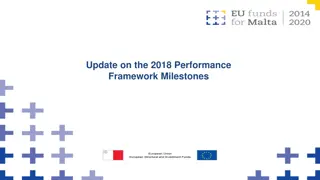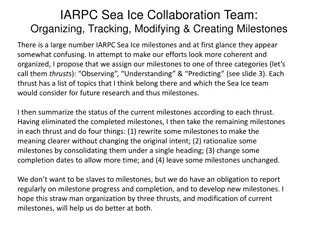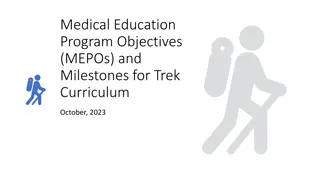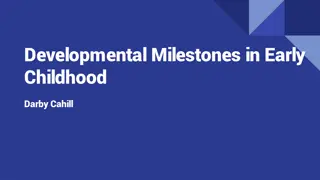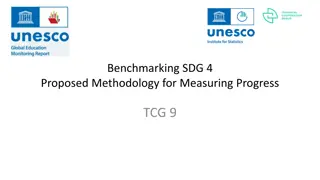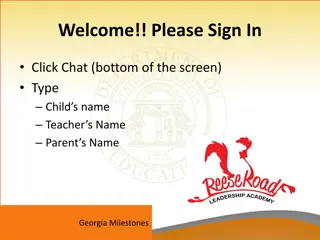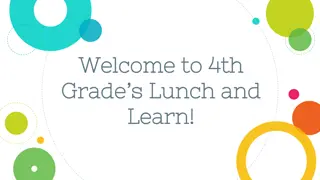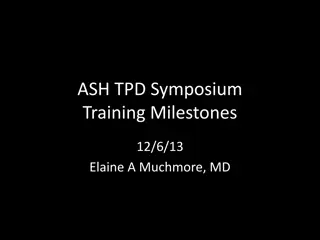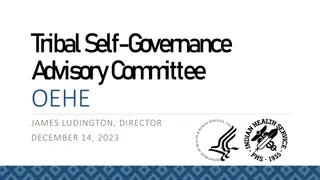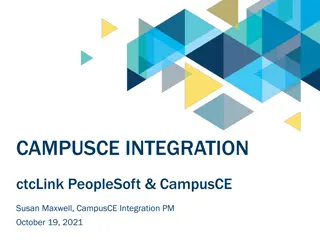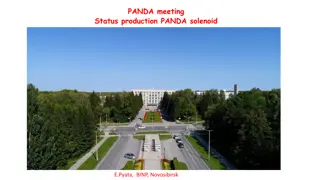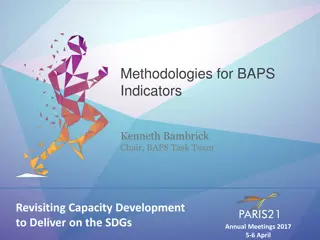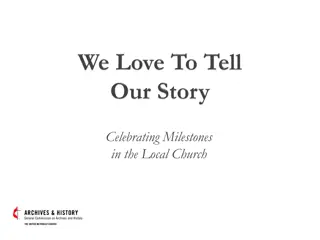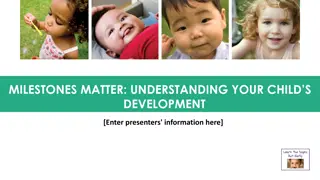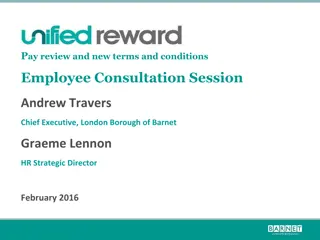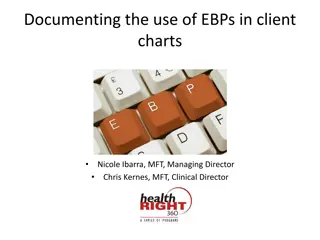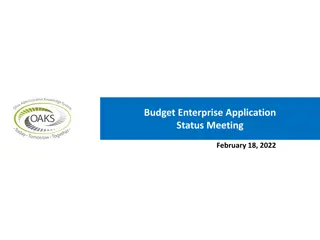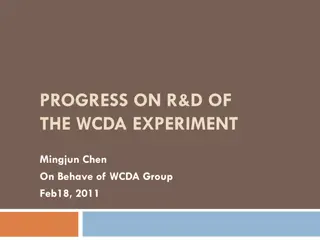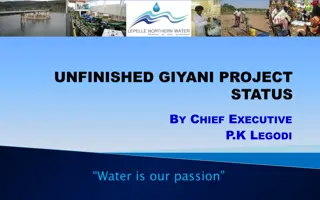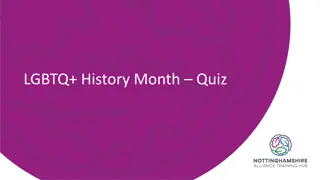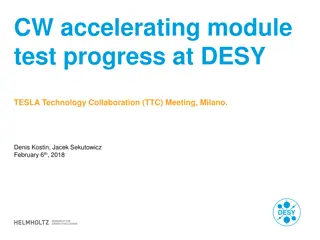MERL Information Session - Progress and Milestones Overview
Today's session covered the progress made on MERL frameworks, developing learning work plans, and upcoming focus areas like Diversity, Equity, and Inclusion. Milestones include changes in practice, ecosystem building, policy changes, coalition building, and shifts in narratives. Baseline data collection is underway to validate and adjust strategies.
Download Presentation

Please find below an Image/Link to download the presentation.
The content on the website is provided AS IS for your information and personal use only. It may not be sold, licensed, or shared on other websites without obtaining consent from the author. Download presentation by click this link. If you encounter any issues during the download, it is possible that the publisher has removed the file from their server.
E N D
Presentation Transcript
MERL INFO SESSION October 28th & November 4th 2020
WHAT WE WILL COVER TODAY Recap on our progress so far: the road to our MEL Frameworks and baseline (15min) Developing a portfolio learning work plan: how to refine learning questions, our learning process, connecting leaning and MEL frameworks (45 min) Questions and comments (20-30 min)
OUR PROGRESS SO FAR The road to our MERL frameworks and baseline
Concluded Ongoing WHAT HAVE WE COVERED AND WHAT IS TO COME? MEL Framework Refine goals and assumptions, identify milestones Diversity, Equity, & Inclusion (DEI) Review Deep dive into DEI and advocacy Baseline Data collection and sense-making October-January January-February 2021 February-April July-August Review Reflect Adapt Plan September-November October-December April-June Learning Identify priority questions, connect assumption Finalise Plans Finalise MEL workplans and kick-off implementation Indicators Defining indicators for MEL framework Theory of Change Goals and Theory of Change pitch
WHAT OUR MILESTONES LOOK LIKE Changes in practice: shifts in attitudes, public behavior, ways of working and practices of groups of interest in a specific direction 16* Ecosystem building: Shifts at organizations or network that translate as capacity to engage with the field or that affect the field 16 Changes in policy: changes in policy or legislation, including policy improvements and implementation 13 Coalition building: shifts on capacity, willingness and/or opportunity of groups to build connections to advance an agenda 11 Changes in narratives: Changes on how our groups of interest perceive, think and talk about an issue 10 * Number refers to the number of milestones in each category.
WHERE ARE WE NOW? BASELINE DATA COLLECTION What will use the baseline for? What else will this review include? Why conduct baseline? - Validate and adjust! - Context - Data availability - Relevance - Feasibility - A light-touch review of key references and data based on the indicators for each portfolios - Identify places where information is missing or insufficient - Identify frameworks and methods that could help us gather data where it doesn t exist yet - Go back to portfolios for initial sense-checking on data collected - Continue to reach out to portfolio leads for context, references, priorities - Further analysis to find overlap in frameworks and data collection opportunities
WHAT OUR BASELINE LOOKS LIKE? Type 1: Indicators with baseline is zero, e.g. policy approved Indicators by type of baseline, per strategy pillar 80 70 Type 2: Indicators with baseline that is internal (i.e. from grantee reports) or require light work 60 25 50 41 40 Type 3: Indicators with baseline that requires accessing/processing large amounts of information, interviews, literature review 30 30 19 20 8 15 10 19 15 11 0 Amplify Worker Power Challenge Corporate Influence Promote Fiscal Justice
DEVELOPING A PORTFOLIO LEARNING WORK PLAN And Connecting it to M(onitoring) & E(valuation) & R(esearch) yes, we are becoming MERL
WHAT IS PORTFOLIO LEARNING AGENDA Our portfolio learning agendas identify a set of key questions, the answers to which can improve the design and practice of individual portfolios and thereby impact. Good learning agendas help to refine and test our understandings about the issue and the contexts in which we operate. This is not to be confused with our Shared Learning agenda which also is designed to improve practice. But portfolio learning agendas are the responsibility of the portfolio teams. MERL (we are now MERL) buddies are here to help.
A GOOD PORTFOLIO LEARNING AGENDA Asking questions is easy. Asking questions that can strengthen our portfolios by Testing our assumptions o o o o o o o Validating or Refute our Theories of Change Right-sizing or changing our Outcome expectations (including timeline) Adapting our funding strategy (e.g., the sequencing of funding) Altering our advocacy strategy Identifying funding partners and/or Modifying goals (including making them more attentive to priorities such as DEI or organizational health) is harder.
PORTFOLIO LEARNING & STRATEGY MANAGEMENT Together with checking progress against indicators, portfolio learnings will form a part of our annual Review, Reflect, Adapt and Plan (RRAP) Sessions, our annual reflection and accountability process that aims, among other things, to iterate portfolio strategies, improve design and practice. The heart of that process involves taking stock of what has been learned to date from what we have done and from our engagement of the issue. The portfolio learning plan is intended to make that process more intentional. To help the RRAP process we will assist each portfolio over the next few months to o Identify priority questions, specifying how the answers will help strengthen the portfolio and feed into plans for the coming year(s) o Break the questions into manageable pieces, with timelines for answers and methods for answering them, connecting where possible to monitoring. THIS IS BY NO MEANS THE WHOLE OF WHAT RRAP ENTAILS BUT A KEY PART
PORTFOLIO LEARNING PROCESS & YOUR MERL BUDDIES The MERL team is here to help you with developing a portfolio learning plan We are not here to learn for you; you have to own it This is not compliance for the most part you will be asked to identify at least 1-2 questions that will have at least provisional answers by the RRAP session I.e., apart from specifying primary questions, this is voluntary o o o


